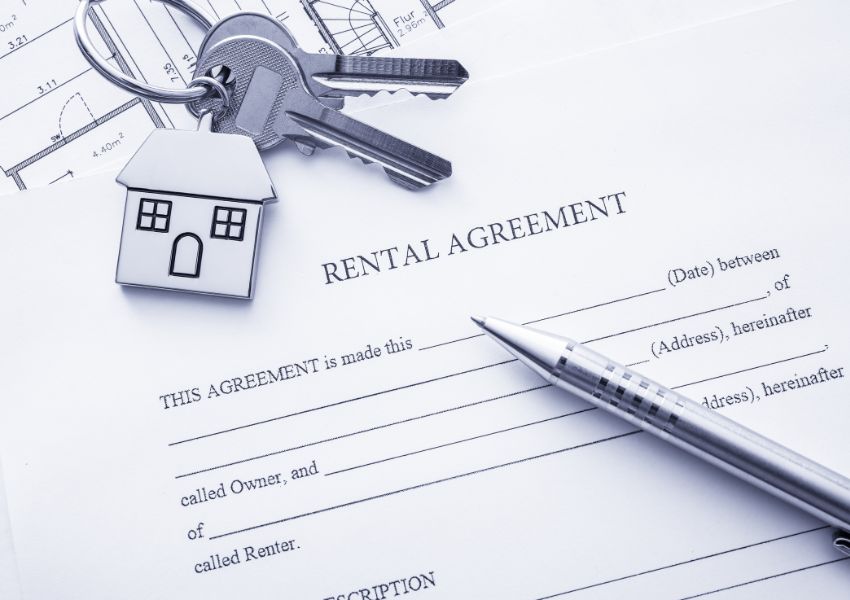
Normally, a lease binds a tenant for a certain duration of time. During that time, usually anywhere between 6 months and a year, they must continue paying rent. Whether they live there or not.
But this doesn’t always happen. Despite your tenant’s good intentions to stay for the entire term, things change which may force them to break their lease early. Your tenant, for instance, may:
- Decide to move in with a loved one.
- Find a better job in another part of town or another state.
- Join active military service.
- Move out of the home citing habitability issues.
Now, some reasons can allow a tenant to break their lease without penalty while others cannot. In this article, we at Ridgewood Property Management will take you through when a tenant can and can’t break their lease legally.
When Can a Tenant Legally Break Their Lease?
The following situations would allow a tenant to legally break their lease early without eviction or penalty under the Idaho landlord-tenant laws:
When the Lease Agreement Permits
Generally speaking, rental agreements don’t have early termination clauses. If they do, then it means that the tenants can break the lease legally. More often than not, leases with an early termination clause require tenants to meet the following conditions:

- Pay a fee. This is usually equivalent to the rent of two months.
- Provide an advance notice. This is usually equal to one month.
In this circumstance you may also need to deal with the security deposit as per the lease agreement.
The Tenant is Entering Active Military Service
The state of Idaho defines a “servicemember” as one who belongs to any of the following military forces:
- Armed forces
- Activated National Guard
- Commissioned corps of the Public Health Service
- Commissioned corps of the National Oceanic and Atmospheric Administration
Such members are protected by the Servicemembers Civil Relief Act (SCRA) against penalties for breaking their lease early. Before breaking a lease, the tenant must fulfil certain requirements as part of the act.
They must prove that they signed the lease prior to starting active military duty. Also, they must prove that they intend to remain on active service for 90 days or more and provide you with copies of the deployment letters from their commanding officer authorizing the deployment.
The lease doesn’t, however, terminate right away. The earliest it can end after the tenant delivers the notice, is 30 days after the next rent period starts.
The Rental Unit is Not Inhabitable
Tenants in Idaho have the right to live in a habitable home. Idaho Statutes § 6-320 requires that landlords provide a home that meets the state’s safety and health codes. Otherwise, the unit would become uninhabitable, and a tenant would have no further responsibilities under the lease.
The following are some of the conditions under which a home may become uninhabitable:
- Failed smoke detectors.
- Insufficient waterproofing or weather protection leading to leaking roof or walls.
- Insect infestations.
- Nonfunctioning heating units.
- Missing or broken doors or windows cracked or crumbling walls, and other forms of structural deterioration.
- Serious leaks, lack of hot or cold running water, a broken toilet seat, and other forms of defective plumbing.
- Exposed wiring.
Idaho requires that landlords make repairs within 3 days after being notified by their tenants. If you fail to do so, your tenant may have several options to pursue. Including, taking legal action against you for failing to honor your contractual lease obligations. In this particular case, landlords must consider how to avoid breaching the Fair Housing Act.
Withholding rent in response to habitability issues isn’t permitted in Idaho, and so is “Repair and Deduct”. The latter option is only allowed when it comes to the repair of smoke detectors.

If The Tenant is Harassed
Harassment may give your tenant enough justification to break their lease without penalty. Landlord harassment is usually defined as the ongoing use of aggressive tactics meant to intimidate a tenant.
Tenant harassment can take many forms, including the following.
- Making threats to the tenant either verbally or physically.
- Sexually harassing your tenant.
- Falsifying or exaggerating charges against your tenant.
- Refusing to accept or acknowledge a rent payment.
- Entering the rented property illegally.
- Failing to serve proper notice to the tenant.
- Removing their personal belongings from the unit.
- Failing to provide amenities that are promised in the lease agreement.
- Creating nuisances or disruptions that impact the tenant’s right to quiet enjoyment.
- Refusing to perform repairs or maintenance tasks within a respectable period of time.
Failing to Respect a Tenant’s Privacy
This is also another form of landlord harassment. While Idaho doesn’t have a statute on landlord entry, that doesn’t mean that you should enter however and whenever you want. You must balance your right of entry against your tenant’s right of privacy.
Ideally, include the specific terms of entry into the lease agreement to prevent potential harassment suits coming your way in the future. Make sure to include the entry times, as well as any reasons for the entry.
Illegal Reasons for Breaking a Lease
The following reasons don’t generally offer enough justification to relieve a tenant of their lease obligations.
- Buying a home
- Upsizing or downsizing
- Moving in with a partner or family-member
- Moving to get closer to work

Landlord’s Duty to Mitigate Damages in Idaho
Idaho landlords don’t have a duty to mitigate damages by re-renting their premises. This generally means that you can hold your tenant liable for all the remaining rent under the lease if you are unable to find a replacement tenant after they leave.
Bottom Line
If you have a question regarding Idaho lease breaking laws or any other aspect of property management, Ridgewood Property Management can help. We can help you get the most out of your Idaho investment property. Get in touch to learn more!
